WHY we need you in Costa Rica
- Around 30% of the population in Costa Rica sits below the poverty line
- The majority of poverty is seen in rural areas, where there may be a lack of resources and limited job opportunites
- Although Costa Rica has a national educational system, those in the poorer rural areas often lack teaching staff and resources
- Climate change and deforestation are damaging Costa Rica's natural biodiversity

HOW can you help?
- Help to to increase the birth rate and survival of turtle hatchlings
- Assist on beach clean ups to help protect the area
- Work on environmental campains and educate on conservation efforts
- Enjoy working as part of a team with your fellow volunteers
WHAT you can do?
- Support the local biologists and researchers
- Assist with turtle nesting grounds and daily duties
- Learn how to identify turtle species and monitor them
- Take part in nightly beach patrols
- If you're lucky, release the babies back into the wild!
Why Involvement Volunteers International?
- Non Profit Organisation & Charity
- Over 30 Years Expertise Globally
- Low Program Fees - From US$295
- Excellent Safety Record, In-Country 24/7 Support & Emergency Assistance
- 1 Application Fee - Multiple Countries

PROJECT NAME: TURTLE CONSERVATION
LOCATION: OFFSITE LOCATION
START DATES: WEEKLY (SAT/SUN ARRIVALS)
ACCOMMODATION: HOMESTAY (SHARED ROOMS)
MIN DURATION: 2 WEEKS
MIN AGE: 18+ (16 with guardian)
SPECIAL REQUIREMENTS: Criminal background check required
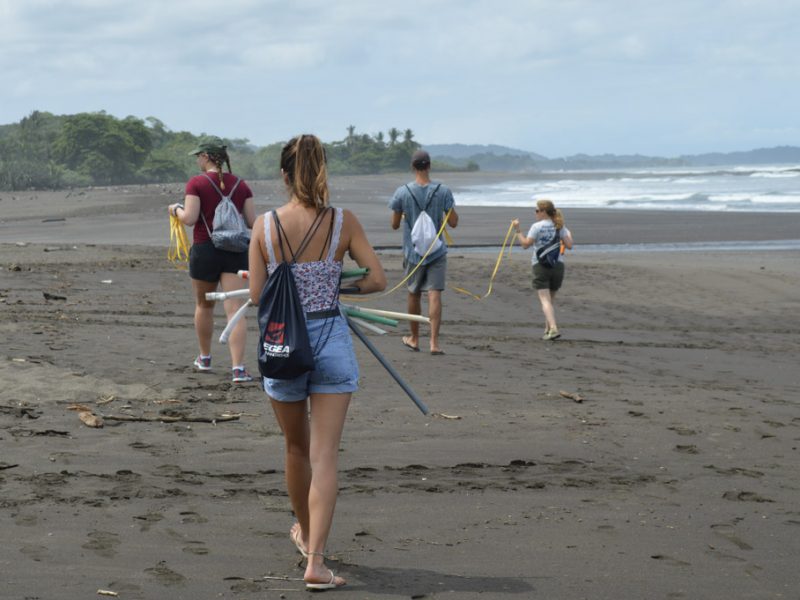
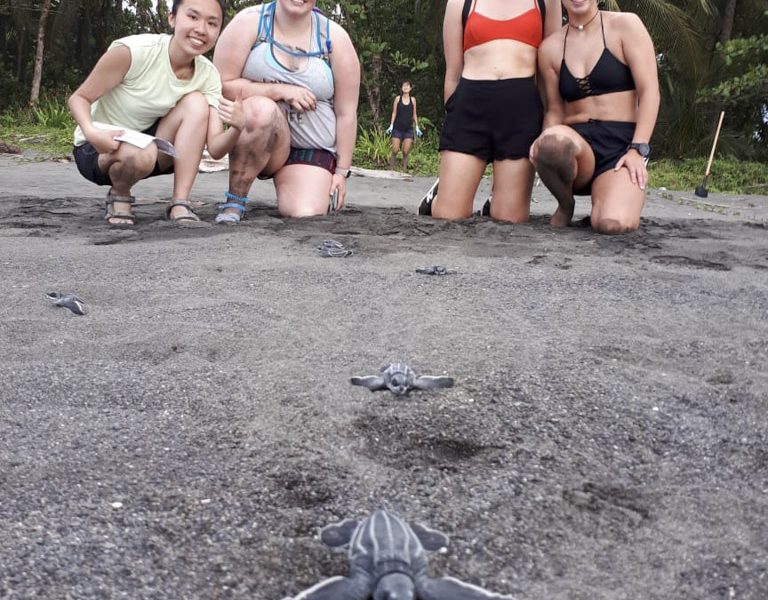
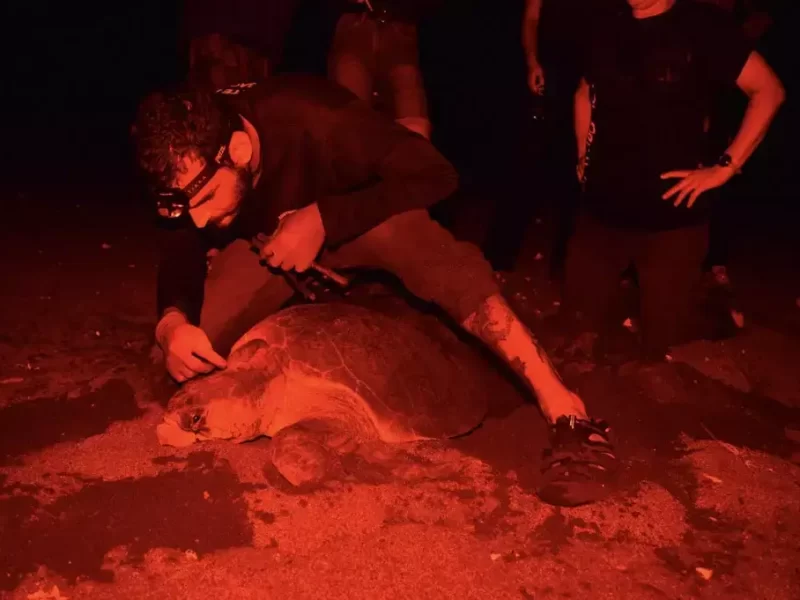
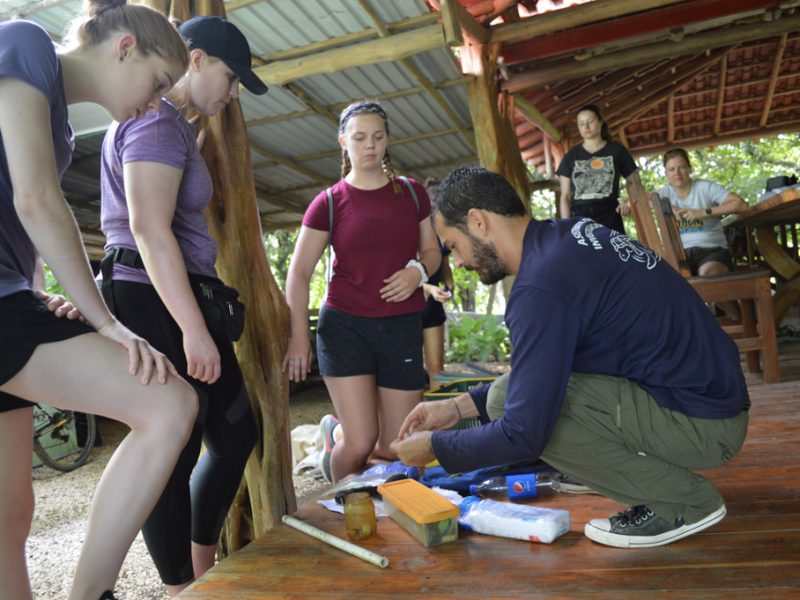
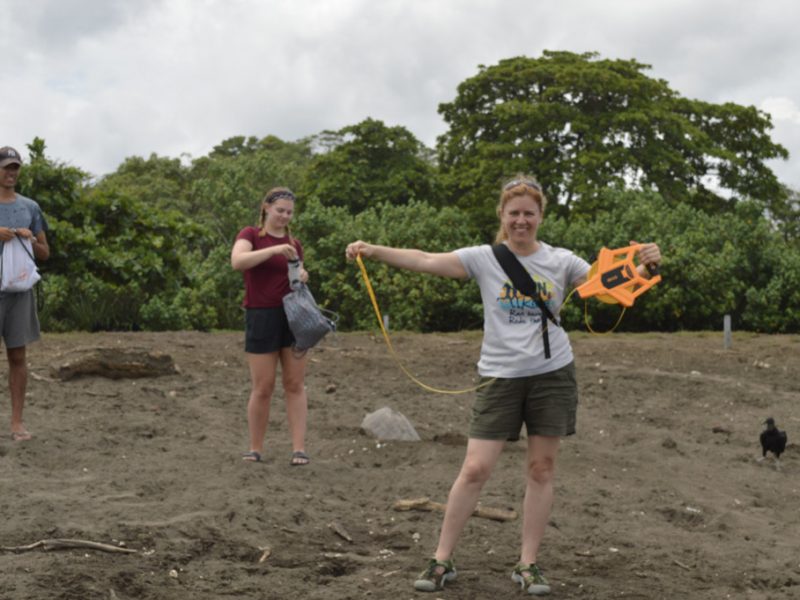
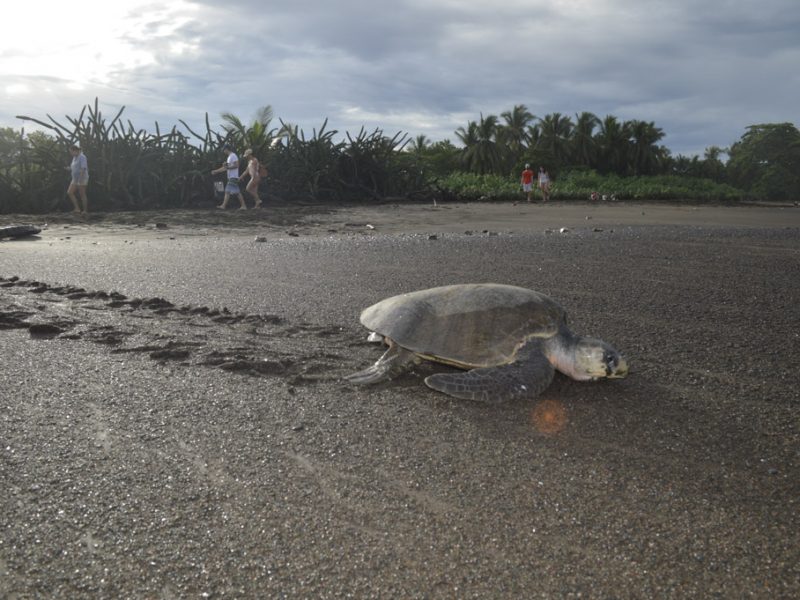

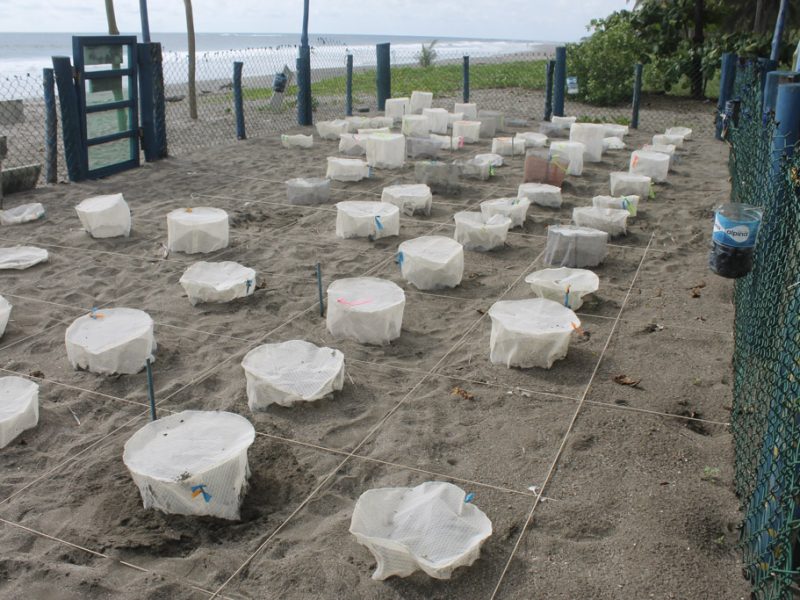

Overview
The sea turtle population in Costa Rica is sadly in danger of extinction. The turtle species can vary, and each species distinctively affects the local environment, ecosystem and habitat. They play an important part in preserving the health of our oceans. The turtle conservation project in Costa Rica is run by both local and international environmentalists and biologists. The main focus of this program is to increase the birth rate and survival of turtle hatchlings. You will also be taught how to collect data and educate the local community about environmental and conservation issues, as well as how to maintain this precious marine ecosystem.
You will work with a supervisor who will teach you how to do everything such as hatchery management, beach patrols, beach clean-up, data collection, and community education. You will help to support local biologists and researchers who are involved in overseeing the turtle nesting grounds. Volunteering in Monday to Saturday, with 1 day off per week.
Location
The turtle projects are situated offsite from the volunteer centre. These locations may not have reliable internet, but a phone is available in case of emergencies. Our local coordinators will check in with you by phone and in-person throughout your project. You will spend 1-2 days in San Jose at the start of your project for orientation.
Project Tasks
- Night patrols on the beach
- Tagging turtles
- Relocating nests into hatcheries
- Counting eggs and turtle numbers
- Beach clean-up efforts
- Community education
Food & Accommodation
While in San Jose for your orientation, you stay in a traditional home stay with a pre-approved middle class Costa Rican family in a shared room. You share with 1-3 other people of the same gender. Our host families are 10-60 minutes walking or by bus from the volunteer hub. On your first day, your host family shows you how to get a bus or taxi to the volunteer hub.
At the turtle project, you stay either with a host family or in dorm-style accommodations – please note that as assignments are made based on availability rather than preference. Because Turtle Conservation sites are very rurally located, some of the comforts and conveniences you are used to may not be available. Wifi may not be available, or be limited and ATM’s are hard to find, so bring supplies with you to the project.
3 meals a day will be served 7 days a week and will usually be local cuisine, cooked by your host family. The food in Costa Rica is a mix of African, Italian, French, Chinese, and Spanish cuisines. Common food are grains such as rice, corn, and beans and different meats mixed with spices like coriander, saffron, parsley, oregano, thyme and nutmeg. The food is usually mildly seasoned and has plenty of fresh fruit and vegetables.
Below images show the project accommodation, and some of the San Jose volunteer hub/ centre.
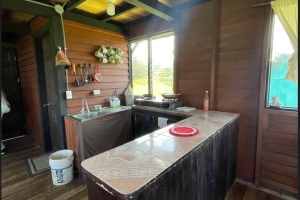

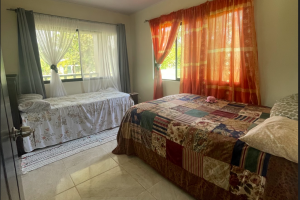
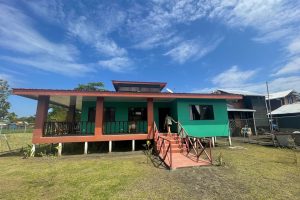
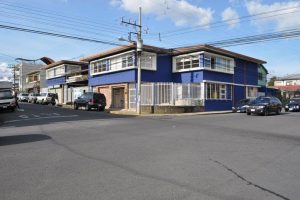
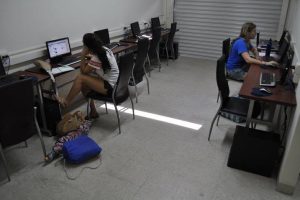

San Jose
Specialty Projects
- Community Construction
- Medical Internship
- Nutrition & Healthcare
- Turtle Conservation
- Sustainable Agriculture
- Beach & Nature Reserve
- *Christmas & New Year Holiday
-
1 Week - $595
-
2 Weeks - $935
-
3 Weeks - $1275
-
4 Weeks - $1590
-
8 Weeks - $2690
-
12 Weeks - $3775
What's Included
-
Accommodation
-
Meals
-
Airport Pickup
-
Local Transportation
-
1 Day Orientation
-
24/7 In-Country Support
-
Project Materials & Equipment
-
Pre-departure Expert Advice
-
Preperation Tools & Checklists
-
Certificate of Completion
- Application fee is one off per person (unlimited placements)
- Click Here to convert the below prices to your local currency
- Discounts may apply if travelling in a pair or group!
- All credit card /international fees included in below pricing! 🙂
Testimonials...



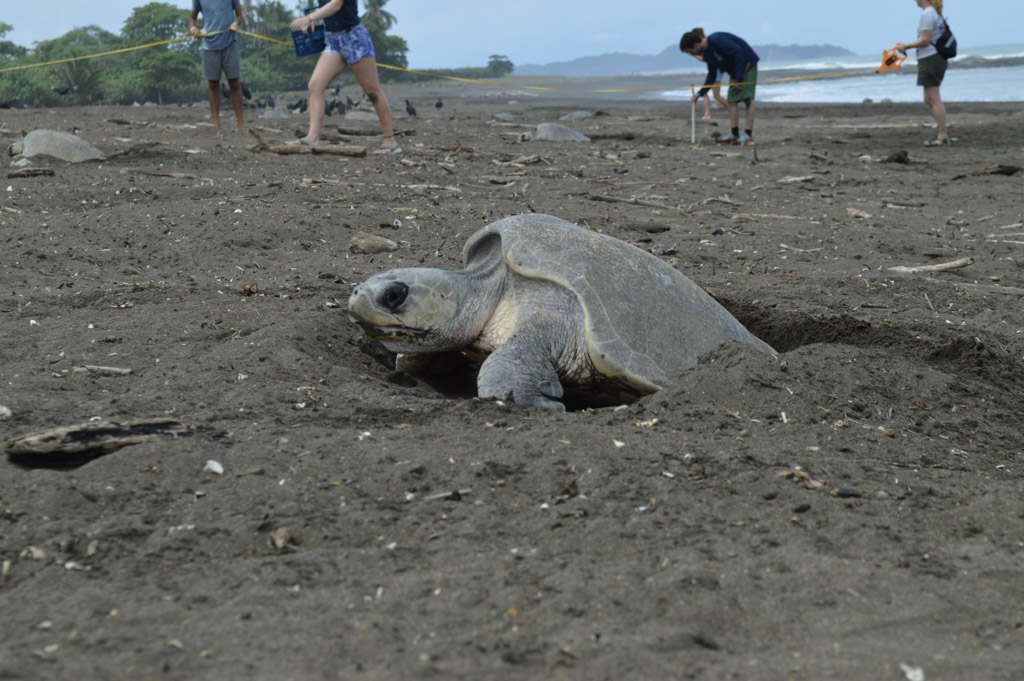
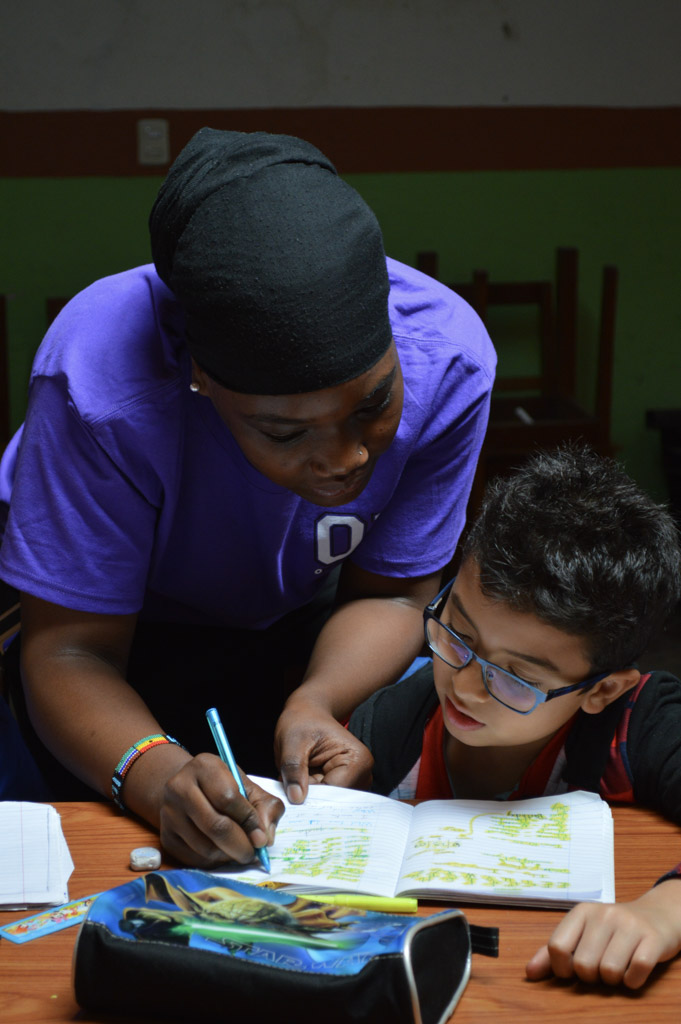


FAQ
If you have a love for the ocean and wildlife, there is not better project for you! This is a great way to help on the important issues of climate change and turtle conservation. You may be placed on accommodation that is quite remote and so must be willing to be able to live without your usual luxuries. You must also be prepared to work late night time shifts, as well as daytime shifts.
- Airport pick-up
- Host family accommodations
- Breakfast and dinner, 7 days/week
- 1 day orientation
- 24/7 in-country support
- Walking tour
- Official certificate of volunteer service
- Letter of recommendation
- Spanish language tutoring table
- Tandem Conversation Program
- WiFi and computer lab
- Salsa dance classes
- Cooking classes
- Free coffee and tea and on-site snack bar
- Volunteer centre open 7 days/week
- Flights
- Travel insurance
- Daily transportation
- Travel and tours
- Transfer back to the airport
- Personal spending money
The Turtle Conservation program begins with a mandatory 2 day orientation session in San Jose, where you receive vital information about your project and trip to the project site. Your host family will show you the best way to get to/from your accommodation to the volunteer centre. Orientation will include health and safety advice, do’s and don’ts, cultural norms, activities and tours you can do on weekends, and a short walking tour, showing you the local area.
Arrival to San Jose
You will spend the first 1-2 nights in San Jose, before heading to the offsite location. Our local team will pick you up from San Jose airport on the Sunday before your project. Sunday night accommodation is included in the fees.
If you arrive outside the pickup times, you can book a private transfer for an extra fee.
If you want to book any extra nights before or after your program, you can do this for an extra fee.
Turtle Conservation project sites and accommodations are located 2 to 5 hours outside the city of San Jose. Public bus transportation to and from the project site is included at both the beginning and end of your program.
We will explain to you how to get to your project site, and you will be given transportation tickets. You will leave on Monday afternoon or Tuesday morning to reach your offsite project. Transportation back is included, and this will usually be Friday evening or Saturday morning.
Working hours vary according to the needs of the project, but you can expect to work 6- 8 hours per day, Monday to Saturday. Your working hours are split into shifts, and you should be prepared to sometimes work late at night or very early morning when patrolling the beach.
Sunday – Arrival / Welcome and Home Stay Introduction
Monday – Orientation day
Tuesday to Saturday
Here is a rough guide on what to expect:
- Breakfast at the accommodation
- 6-8 hours of volunteer work
- Your own lunch at the accommodation or project site
- Free time
- Dinner at the accommodation
You will be in a remote location but can leave the site if you wish.
San Jose
San Jose is the capital city and has plenty to do from city tours, watching a show at the theatre, markets, museums, parks, and city walking tours. You can also take day trips to mountains, volcanoes and the beach.
Arenal Volcano
Situated about 90 km northwest of San Jose is Arenal volcano, measuring 1,633 metres high. This scenic volcano is one of the most popular tourist attractions, with daily tours walking around it, plus it’s proximity to the nearby rainforest and waterfalls make it a popular place to visit.
Parque Nacional Manuel Antonio
Close by the where a lot of our projects are, this National park is one of the most popular in Costa Rica. With beautiful beaches, rainforest walking trails and an abundance of wildlife, this is a must visit for any traveller!
Monteverde Cloud Forest Reserve
Another stunning destination to visit and a lush oasis of green rainforest and misty fog and clouds sitting at the top of the canopy. There are around 420 different types of orchids, ferns mosses, as well as a large bird population- perfect for nature and wildlife lovers. There are also night time walking tours.
Corcovado National Park
A stunning national park with plenty of hiking trails, natural swimming holes, waterfalls, rainforest, wildlife, flora and fauna and camping. Here you will find more than 400 bird species, monkeys, sea turtles, over 40 frog species, 100 butterfly species and perhaps even a jaguar.
Adventure activities
Costa Rica has so much to do for those who like to live on the wild side! From ziplining, white water rafting, canyoning, surfing, snorkelling, diving, horse riding and paddle boarding. This is a nature and adventure lovers paradise!
Beach Hopping
There is no shortage of beautiful beaches in Costa Rica. From white sand, black sand, beaches that meet jungle and all with crystal clear, blue waters. Many of the beach town have cafes, restaurants, accommodation and places to grab a fresh coconut juice, the perfect way to chill out after a hot day!
Volunteers must:
- Be at least 18 years of age
- Those under 18 are welcome when there is a faculty leader, parent, or guardian present
- Have a good level of fitness (the work can require manual labour)
While you have access to all the standard Local Services while in San Jose, please keep in mind that at Turtle project sites:
• Local transportation is limited and walking is the best way to get around. To travel further for activities or shopping in larger towns, public bus service is available.
• ATM’s are not be easily accessible, if at all. You should take the cash you need with you when you leave San Jose – our local team can help you to budget for the duration of your stay.
• Depending on your location and accommodations, Wifi may not be available.
• Medical treatment at the project site is provided by local doctors and small clinics. Our team and the local staff can support you if you require medical attention or have any concerns.
While the areas may be remote, the location is beautiful and there is plenty to do! Along the beaches there are activities like scuba diving, surfing, snorkeling, body boarding, and more! You can also enjoy land excursions like hiking, horseback riding, adventure tours, and zip-lining, all of which are easily found nearby.
Costa Rica is a small country in Central America and is bordered by Nicaragua to the North, Panama to the South, the Pacific Ocean to the West, and the Caribbean Sea to the East. The country has a population of 5 million people and is roughly the same size as a large city in the USA! Costa Rica offers incredible mountain trails, coffee plantations, lush rainforests and some stunning beaches, with a huge variety of landscapes.
Volunteer projects are situated in the beach town of Manuel Antonio and in the capital city of San Jose. Some projects are situated in areas further afield, offering a more ‘off the beaten track’ option. These areas are Guanacaste (beach), Caribbean (beach), and Monteverde (cloud forest).
Manuel Antonio: Located at sea level, you can expect average temperatures from 19 degree Celsius to 28 degrees. The dry season is from December to April with hot and humid weather. The wet season is from May to November. The weather will be humid, with showers throughout the day. The plus side of travelling during this time is that everything will be so green!
San Jose: At 1170 metres above sea level, temperatures can range from 20-30 degrees Celsius. December to April has little to no rain, moderate temperatures and can get cooler during the evenings. May to November experiences warm days, cool nights and short intermittent bursts of rain and sun.
Costa Rica still has much of its Spanish heritage (the national language), with a vast amount of the population being of Afro-Caribbean descent. There is also a small population Jewish and Chinese communities. A large proportion of the country is Catholic and Latino music and dance are enjoyed throughout the country, as well as a love for soccer. Cost Rica disbanded their armed forces in 1949, as the area is so safe. The people are happy, laid back and welcoming.
30 Years Non Profit Experience
IVI is an Australian charity & non profit organisation founded in 1989 and is one of the pioneers of overseas volunteering successfully placing over 20,000 volunteers globally.
Affordable Volunteer Travel
Safe & Responsible Projects
Work Experience & University Credits
Check out this amazing blog with step by step info on how to raise funds for your overseas volunteer experience to help maximize your impact abroad. Guide to Fundraising
Weekends & Extra Tours


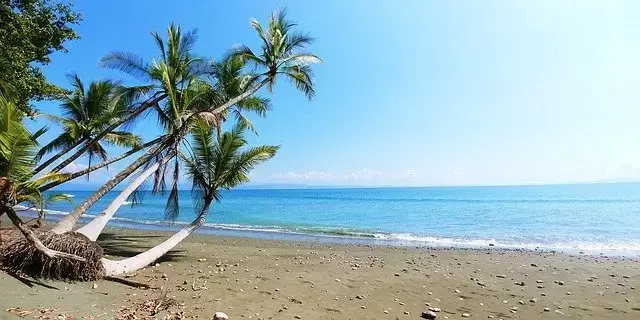

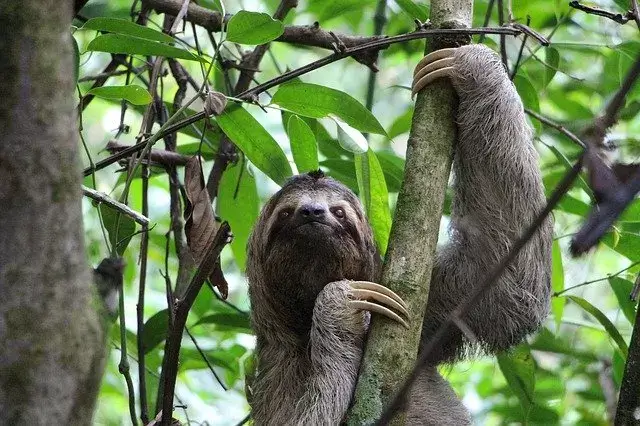

 Involvement Volunteers International
Involvement Volunteers International